Identity is a tricky thing. Even for the most self-assured, motherhood has a way of shaking up what we think we know about ourselves. This has been especially true for me, a queer woman in a long-term relationship with a man.
As we come to the end of PRIDE month, I can’t help but notice the absence of LGBTQIA+ representation on most parenting sites. Of course, when it comes down to simple math, it would make sense that most posts would be written by cisgender, heterosexual individuals – but not all of them, right?
In a true Carrie Bradshaw moment, I had to ask myself, “Do members of the queer community not exist in “mainstream” parenting communities, or are they, like me, a bit invisible?”
The answer, I think, is a bit of both. While there is certainly a time and space to unpack all the reasons for this underrepresentation, I’m neither an expert nor particularly well positioned to articulate the experience of parenthood in a context other than that of a mother in a hetero-passing relationship. And I’m barely well positioned to do that, but because representation matters, I’ll do my best.
A Spectrum
To start, it’s important to note that sexuality is a spectrum. Culturally, we’ve created a set of labels and terms to better help us articulate our identities and communicate with others accordingly. Most heterosexual people I know are very comfortable with the label “straight” while many LGBTQIA+ folks in my life are more likely to have softer, more fluid, less exacting ways of self-identifying.
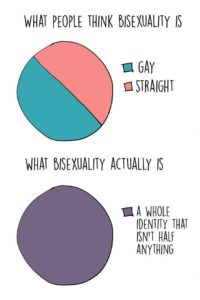
In the most technical sense of the word, you could say I’m bisexual. But even that doesn’t quite fit my experience. However, it’s incredibly difficult and emotionally exhausting to continually explain and defend the identifiers that feel most authentic to me.
Not that I often get in conversations with folks I don’t know about my personal identity, but when it happens, you can imagine the can of worms that gets opened when I share: “I’m a *mostly* gay woman in a long-term relationship with a cisgender, heterosexual man. A man for whom my depth of love can’t be adequately communicated and with whom I share a child and a menagerie of rescued animals.” Clearly, that’s often too personal and quite frankly, not most people’s business.
While a person’s sexual orientation slash identity is really no one’s business but that person’s, I’m willing to share mine today for two specific reasons.
Shame
I’m unwilling to model shame about my identity to my daughter. If you’re in a heteronormative relationship, it’s unlikely you’ll ever have to talk to your children explicitly about your sexual identity. Heteronormativity is accompanied by a great deal of privilege (I know, because my hetero-passing marriage shares in those privileges most of the time). One of those privileges is that you’ll never have to explain or defend your sexual orientation/identity to your child.
Given the fact I’ve been married to my husband for a decade and it doesn’t look like that ship is sinking any time soon, it’d be easy for me to do the same. The thing is, in doing so, not only do I erase a really important part of my lived experience, I risk implying that I’m ashamed of who I am. Worse still, my daughter may internalize the message that if there are confusing or non-normative parts of her identity, she too should hide them. That’s a risk I’m unwilling to take – for both our sakes.
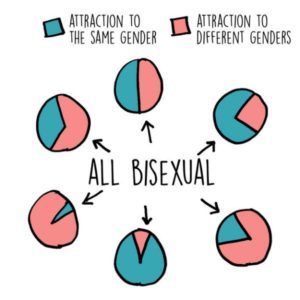
So, I talk as openly as is developmentally appropriate for my daughter to understand. Clearly that excludes graphic and sensitive topics – in the SAME WAY it would if I were straight. But, I don’t shy away from talking about non-heteronormative family structures and that I have loved women in the past. If you were to ask her, my daughter would say her mommy “likes boys and girls, but she loves daddy.”
Validation
The second reason I’m putting it all out there is because I know I’m not alone. It’s incredibly difficult for LGBTQIA+ folks in hetero-passing relationships to feel like their identity is seen let alone validated by others. It is, quite often, invisible. And unless someone is willing to engage in the courage and vulnerability required to say “See me!” it can be incredibly lonely.
The same is true for bi or pansexual individuals in a relationship with someone who presents as the same sex or identifies as nonbinary. Individuals who publicly confirm their partnerships, hetero-passing or otherwise, quiet other parts of their identity that may otherwise be foundational to how they view themselves and the world.
That is to say, to all the parents who have parts of themselves that feel unseen, especially if those parts relate to your orientation/identity, you are not alone. Your sisterhood/brotherhood/community may be harder to find, but we’re here.
I’m here. I see you and I understand.
Just a Start
I removed many parts of my story and reflections about queer identity and parenthood in the editing of this piece. It’s hard to capture the complicated, messy, beautiful, profound and expansive experience in less than 900 words. Given a shared understanding that I’m not the be-all-end-all voice of this topic (NOT EVEN CLOSE), I am willing to share more of my own experience. An experience that is ever-evolving, nonlinear, and difficult in all the ways self-discovery and acceptance are.
If you’ve got (kind + appropriate) questions, I’ll do my best to answer them in the comments of this post. Or, you can send me a message, and I’m happy to connect that way.




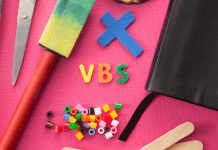



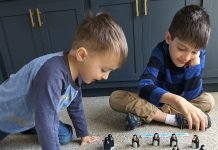
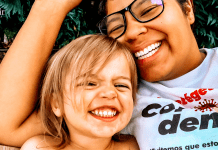
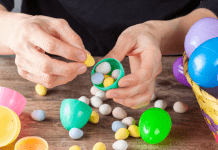
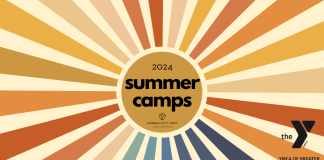





It’s so important to be who we are as parents- and represent our identities, even if they are “hidden”. Thanks for the thoughtful piece.
Wonderful post and thank you for sharing you experience!